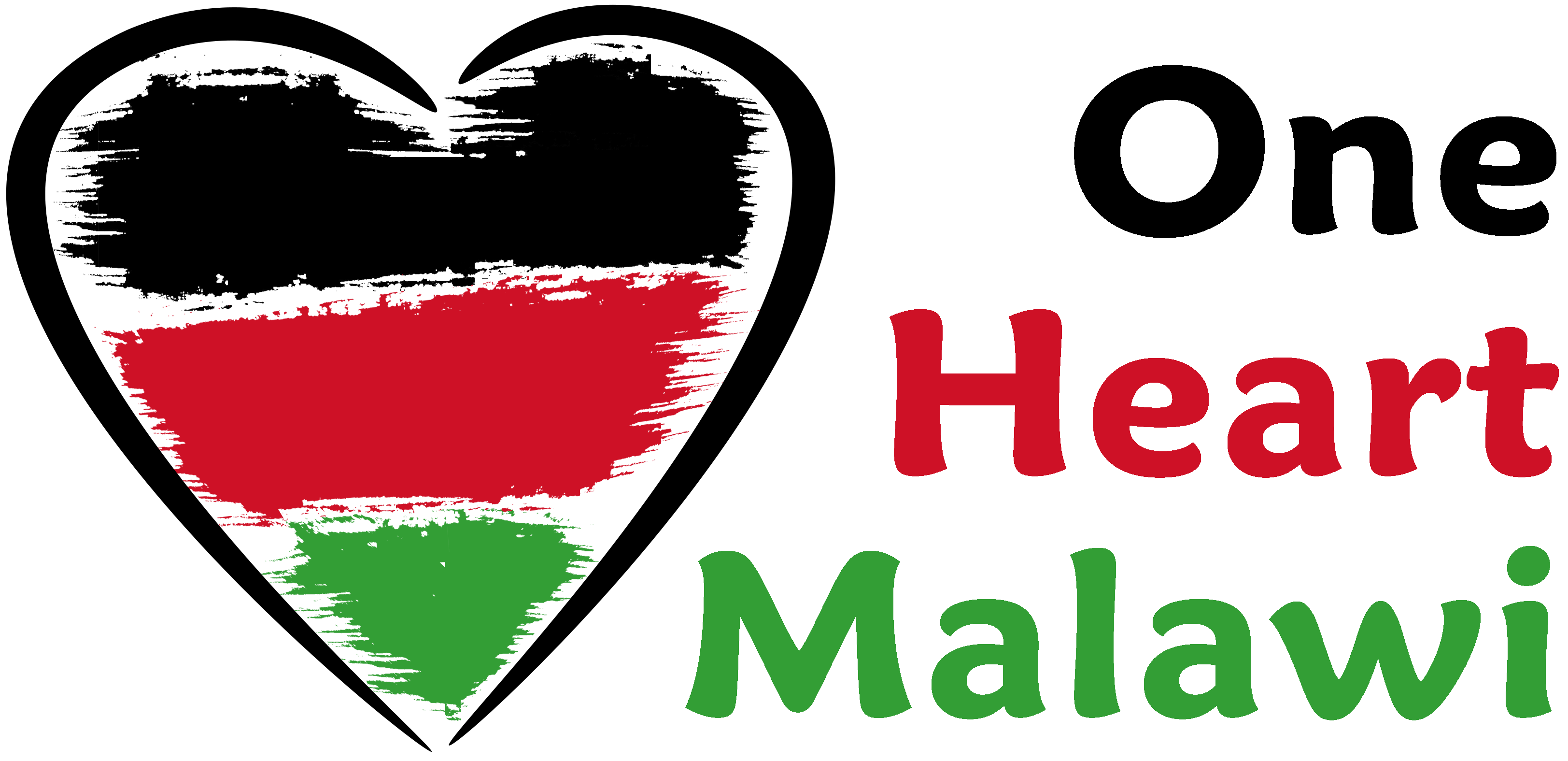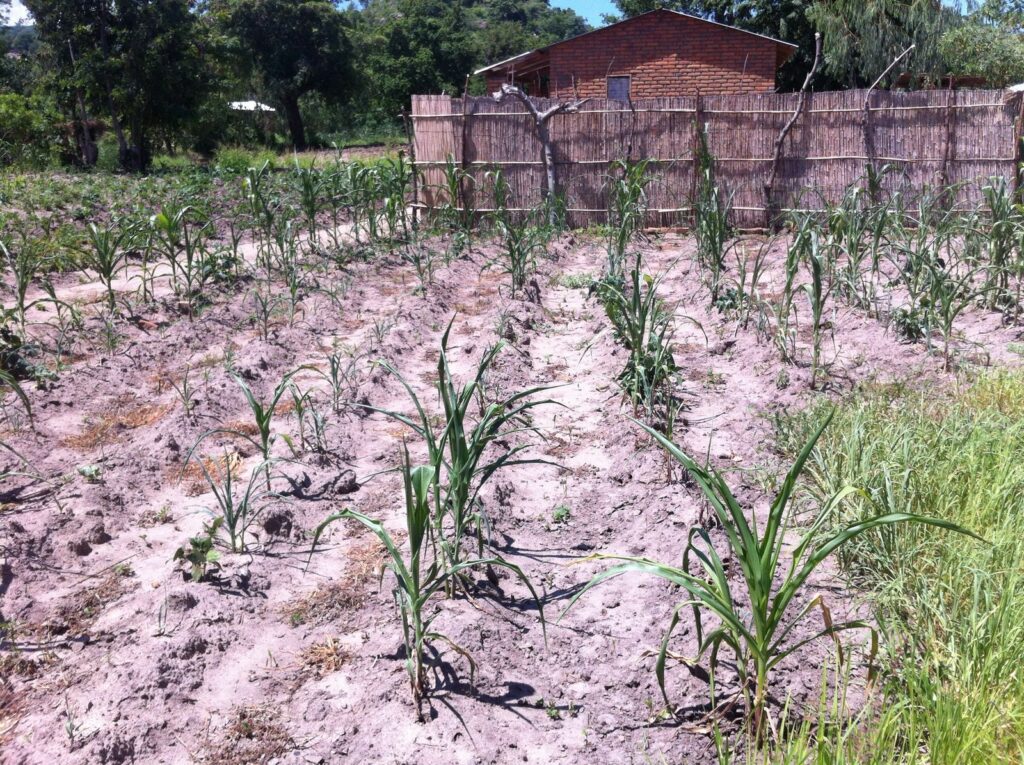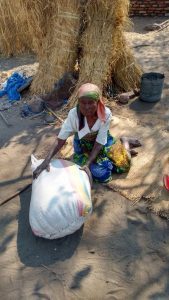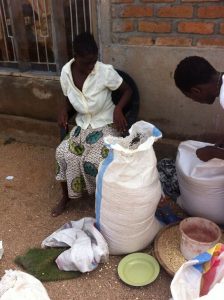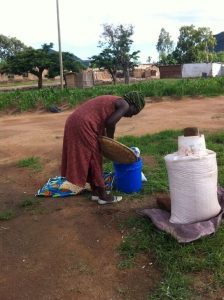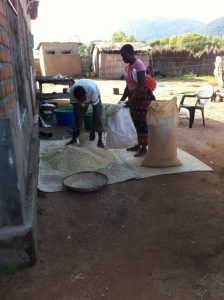Food project | Chakudya
Situation
Famine in 2016 due to crop failure.
Target group
Inhabitants of Monkey Bay.
Approach
Bringing maize to people without food.
Status
In total €1,468 was raised providing food for 30 families.
We no longer collect donations for this project. This was an acute disaster requiring acute help in 2016.
Dependency on rain
In Malawi people are dependent on the wet season. Normally, the wet season starts between November and December which is the time in which maize can be sown. This harvest is needed for the rest of the year. The maize is milled into maize flour, from which ‘nsima’ (a kind of porridge) is made. This is the staple food for the Malawian people. They eat ‘nsima’ twice a day with, if available, some fish and vegetables. Normally the maize should have been harvested by then, but there was an extreme drought in Malawi in 2016. A crop failure occurred due to weather phenomenon ‘El Niño’, in which the sea surface temperature along the equator is strongly increased in the eastern Pacific. This influenced the weather around the globe. In some countries, like Malawi, there was barely any rainfall, whereas other countries were flooded.
Famine
Fundraising
When we experienced this up close, we wanted to do something. Mariska from the Netherlands and Aaron from Malawi. We saw opportunities, but these required money. The maize was cheaper in cities and where more rain had fallen. Locals could not get there and did not manage to buy the maize for these cheaper prices. Aaron himself had a car and could rent a truck to buy the maize somewhere else. If Mariska could collect money in the Netherlands, Aaron wanted to buy the maize flour for 15000 Kwacha (or less if possible) per bag in Malawi. He did not want to give the maize away for free, but sell it for 7000 Kwacha in Cape Maclear. This way, next to the money obtained via fundraising, more money was available to buy maize a second time to be able to help even more people. This way we wanted to prevent famine in the village. Mariska set up a separate bank account for ‘Help for Malawi’ at which donations could be received. Via email she informed family, friends and acquaintances about the problem and the plan. She asked if the email could be distributed even further. In this email Mariska added links to the news items from Malawi that clearly showed the severity of the situation. It was emphasized that with one bag of maize, an average family could eat for 1.5 months, and that the money would be used wisely and well. The money that was raised by Mariska in the Netherlands was directly send to Aaron in Malawi, where it would be in good hands. Also Mariska would keep all donors informed via pictures and updates from Aaron in Malawi.
